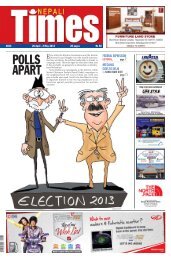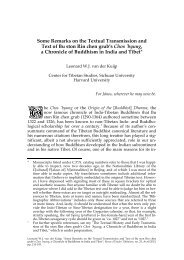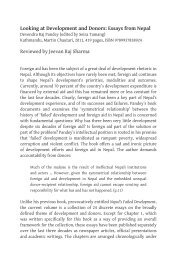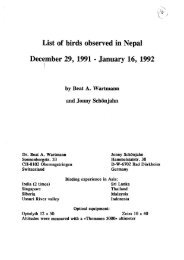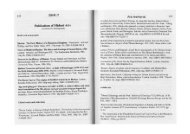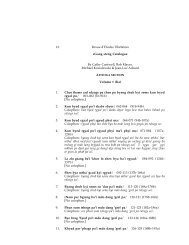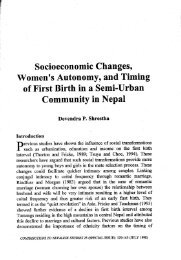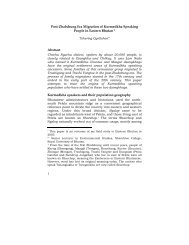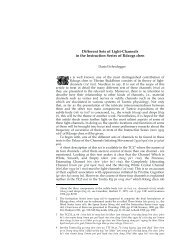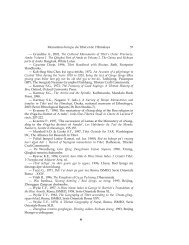Create successful ePaper yourself
Turn your PDF publications into a flip-book with our unique Google optimized e-Paper software.
SPINNING OUT OF CONTROL: How long can<br />
oil-processing families in Khokana hold on<br />
to their traditional lifestyles?<br />
nation weekly | MAY 30, 2004<br />
The case against GM produce here is<br />
so obvious that it does not need to be<br />
argued. One, chances are that transgenic<br />
varieties of canola have contaminated our<br />
crops. Two, chances are that a substantial<br />
portion of the oil here is now from<br />
GM seed. Three, chances are that a lot of<br />
our farmers have stopped growing for<br />
the local markets because of the crippling<br />
effects of western farm subsidies<br />
that allow for dumping in faraway Nepal,<br />
essentially affecting the market for<br />
non-GM organic produce, destroying<br />
local production capacities and self sufficiency.<br />
Given Nepal’s fragile ecosystems and<br />
farming systems, citizens need to decide<br />
whether they want GM food or not. The<br />
idea is not to toss evidence at Nepal, but<br />
to allow Nepal to build its own evidence<br />
and have a public debate before deciding.<br />
Given the health and environmental<br />
risks it is only fitting that relevant Canadian<br />
authorities—dealing with farming<br />
and export—explain the presence by<br />
stealth of GM produce in Nepal. If indeed<br />
transgenic canola has contaminated<br />
the environment, they must pay for the<br />
clean up costs. If the government of<br />
Canada is answerable to its people, it<br />
must answer also to the people of Nepal.<br />
Last month, China, one of the biggest<br />
markets for Canadian<br />
canola, shut its doors. The<br />
head of the Chinese agency that<br />
oversees the genetically modified<br />
crop, Shi Yanquan, declared<br />
that genetically modified<br />
products would not enter<br />
China without a safety certificate.<br />
New EU rules on labeling<br />
and tracing of genetically<br />
modified foods came into effect<br />
on 18 April 2004. The<br />
rules, described by the EU as<br />
the toughest GM food regulations<br />
in the world, require<br />
food and animal feed to be labeled<br />
if they contain at least<br />
0.9 percent of GM ingredients,<br />
essentially giving consumers<br />
the choice. A survey<br />
of EU customers showed that<br />
70 percent do not want GM<br />
food. Do we?<br />
(Thomas works at IUCN.The<br />
views expressed are his.)<br />
29




